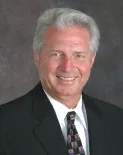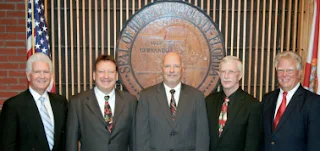By now you’ve heard that there’s a bill being pushed through the bowels of the legislature that will allow the City of Tampa to “own” the wastewater it reclaims. No? Well, there is such a bill, and it stinks.
Why? I’ll try to explain.
The bill, HB 639 sponsored by Representative Dana D. Young (R) Tampa, does a number of things to change how the state views the ownership of wastewater throughout the state which has been treated and declared reclaimed by the Florida department of Environmental Regulation. (The bill is co-sponsored by James W. “J.W.” Grant (R) Hillsborough , Ray Pilon, (R) Sarasota, and Janet Cruz, (D) Hillsborough.
To be clear, this would be the same water taken primarily from the Hillsborough River, in Tampa’s case, and used to flush all the human and other unthinkable wastes the city’s residents produce from their bathrooms and industrial discharges and carry it via pumps and pipes for “treatment” to the city’s Howard F. Curren Advanced Wastewater Treatment Plant at Hooker’s Point.
Each day, the city produces 55 - 60 million gallons per day of this highly treated former Hillsborough River water and each day it dumps it all back into the river and thus into Tampa Bay. It can’t do anything else with it right now because under Florida Law it continues to be considered “waters in the state,” a public resource, thus requiring a permit from the Southwest Florida Water Management District Florida Department of Environmental Protection to dispose of it any other way. And, this is the way it needs to stay.
It’s not that the city can’t do anything else with it. It’s just that the city can’t do it without a permit from SWFWMD DEP.
Under current Florida law, reclaimed water is an alternative water source that is included in the statutory definition of “water” or “waters in the state.” Thus, reclaimed water is currently considered a public resource. Florida law recognizes only a right to the “beneficial use” of waters in the state, including reclaimed water, subject to statutory and administrative permitting requirements. As such, reclaimed water is not legally considered the property of or exclusively controlled by an entity that produces it.
This, says the city, is too constraining and controlling. Why shouldn’t the city be able to actually own and do what it wants with this water which costs so much to treat to state standards?
A reasonable question.
Fortunately, there’s not too much concern about most of HB 639. With the exception of that one certain provision pertaining to what I believe is virtually equivalent to "ownership," it is generally supported by many special interests including environmentalists. The concern here is about what the City of Tampa, and only the City of Tampa, wants added to the more acceptable provisions of the bill. This is where those who understand the nuances and vagaries of Florida Law say the bill can do real damage to how the state assures reclaimed wastewater remains a critical part of Florida’s comprehensive water resource management equation.
This bill removes reclaimed water from the current statutory definition of “water” and “waters in the state” until the reclaimed water has been discharged back into state “waters.” That is, once a wastewater treatment plant converts wastewater into reclaimed water, it is no longer considered “waters in the state” until it has been discharged into state waters such as the aquifer, rivers, or estuaries. According to DEP, this definitional change removes the use of reclaimed water from regulation by the WMDs under the CUP permit program. From a legal perspective, the change shifts control over the use of reclaimed water from the State to the producers of reclaimed water. (emphasis added)
And this is the bogeyman in the bill.
Reclaimed water is an important alternative water supply source in Florida in light of mounting pressures on the State’s fresh water resources, principally surface water and groundwater. Among its noteworthy benefits, the use of reclaimed water saves water that would otherwise need to be withdrawn from surface water and groundwater sources to meet non-potable supply needs such as agricultural or residential irrigation, power generation, or recreation (e.g., golf courses or waterparks). Additionally, reclaiming waste water reduces reliance on traditional wastewater disposal methods such as surface water discharges, ocean outfall, or deep injection wells. DEP asserts that “Florida is leading the nation – reusing 660 million gallons of reclaimed water each day to conserve freshwater supplies and replenish our rivers, streams, lakes and the aquifer.” (emphasis added)
SWFWMD’s Master Water Plan Executive Summary states further:
Guiding Principles (p. 17)
An emphasis on reclaimed water. Reclaimed water is an important resource that can help meet future demands in all use sectors. (emphasis added)
Obviously, we’re not talking about a tiny rivulet of water that the city wants itself and hundreds of communities to control here. We’re talking over 660 million gallons per day statewide, and that’s just for now. With the growing need to reuse all water being consumptively and permanently removed from lakes, rivers, springs, wetlands, and aquifers, we’re talking about turning over to hundreds of counties, cities, and small communities control of probably close to a BILLION GALLONS OF WATER PER DAY IN THE VERY NEAR FUTURE!
If state leaders truly want efficient, comprehensive management of the state’s waters, so critical to its future, this is certainly not the road to redemption.
As Estus Whitfield (Environmental Advisor to Florida Governor's Graham, Martinez, Chiles, and Bush) has said, “It is Florida's environment and natural resources that define this state - its society and economy,” … to which I would add, and it’s Florida’s water that defines Florida’s environment and natural resources. It would simply be disastrous to slice this part of Florida’s future from the comprehensive management that the water districts provide and hand it over to the politics and disparate interests of hundreds of independent governmental bodies.
There is another circumstance that makes this proposal smell.
The fact that all reclaimed water originates from “waters in the state” at some point in its existence and, as mentioned earlier, is used to transport Florida’s societal wastes to a treatment facility where it can be rendered again safe for further reuse provides no rational basis for it to then become so controlled that it can also be defined as “owned.”
So the question arises, just why does the City of Tampa want to “own” its reuse water? Presumably, because the city wants to make money by selling it. The city is conveniently not talking about this, however, or how it would apply to hundreds of other communities who would take ownership and be able to create revenue from the sale of their reclaimed water.
Sounds sort of reasonable until one considers that many of the governments that own these facilities were recipients of state and water district revenues granted to them expressly so they could afford the upgrade costs associated with waste water reclamation. According to the same legislative staff analysis (p. 6):
Between fiscal years 2005-2006 and 2007-2008, the Legislature authorized the allocation of over $217 million among the five WMDs to develop alternative water supply projects. Reclaimed water development projects made up the bulk of project types that were funded over these four years, comprising 202 of the 324 funded projects.
Additionally, and far beyond this substantial amount, the water management district’s provided more grant funds derived from local property taxes. For example, since 1987 SWFWMD alone has provided $343 million, mostly through its now defunct local basin boards, to help fund 308 reclaimed water projects within its boundaries. Most of this was for 297 miles of pipeline.
The quantity of reclaimed water thus produced is about 160 mgd which equates to 160 mgd of new water for economic growth and sustainment of natural systems. (data provided by personal communication with district staff).
If counties and cities were to be given control of all reclaimed water now being produced as HB 639 currently proposes, and those communities were to be able to choose who they were going to sell it to and how the water would be used, any assurance the state now has that its future water needs will be met in adequate quantities would be reduced to unsubstantiated guesswork.
Which brings another point.
It isn’t just cities and counties that will gain "ownership" of their reclaimed water. Billions of gallons of water that originally came from aquifers, rivers and lakes and which are being now used and treated for reuse by hundreds of industries would be included. As long as they kept the reclaimed water within their containers, whether a pipe, reservoir or tank, and as long as it wasn’t being discharged into “waters in the state” it would be theirs to sell and trade to others.
There are many farms and other businesses that now use reclaimed water provided by these many facilities which were funded with state and local property tax dollars. If these farmers and businesses had to compete with others who could also use reclaimed water, many would likely not be able to afford the higher price and would have to close their gates and doors.
On the other hand, mining companies, paper companies, breweries and power companies use huge quantities of water. Today, the water districts require this water to be reclaimed and reused. If the districts were to be now removed from the regulatory equation and the water becomes “owned” by these companies, what’s to prevent the reclaimed water from being sent across district boundaries as proposed by the Committee of 100 a few years ago and sold to a faraway community willing to pay the best price? Growth opportunities for one area would become sacrificed for those of another, and the real water wars will be on.
If the legislature is so unwise as to pass this bill with this provision, it will be creating a very slippery slope that could very easily move the state toward a major shift in Florida water law and the privatization (private ownership) of water. Though this is being denied by the bill’s proponents, true good faith denial is impossible. The bill is in serious need of further review, particularly this provision which needs to be permanently flushed and not reclaimed in any respect.
Shades of Nancy Argenziano and Local Sources First. May she live to rise again.





